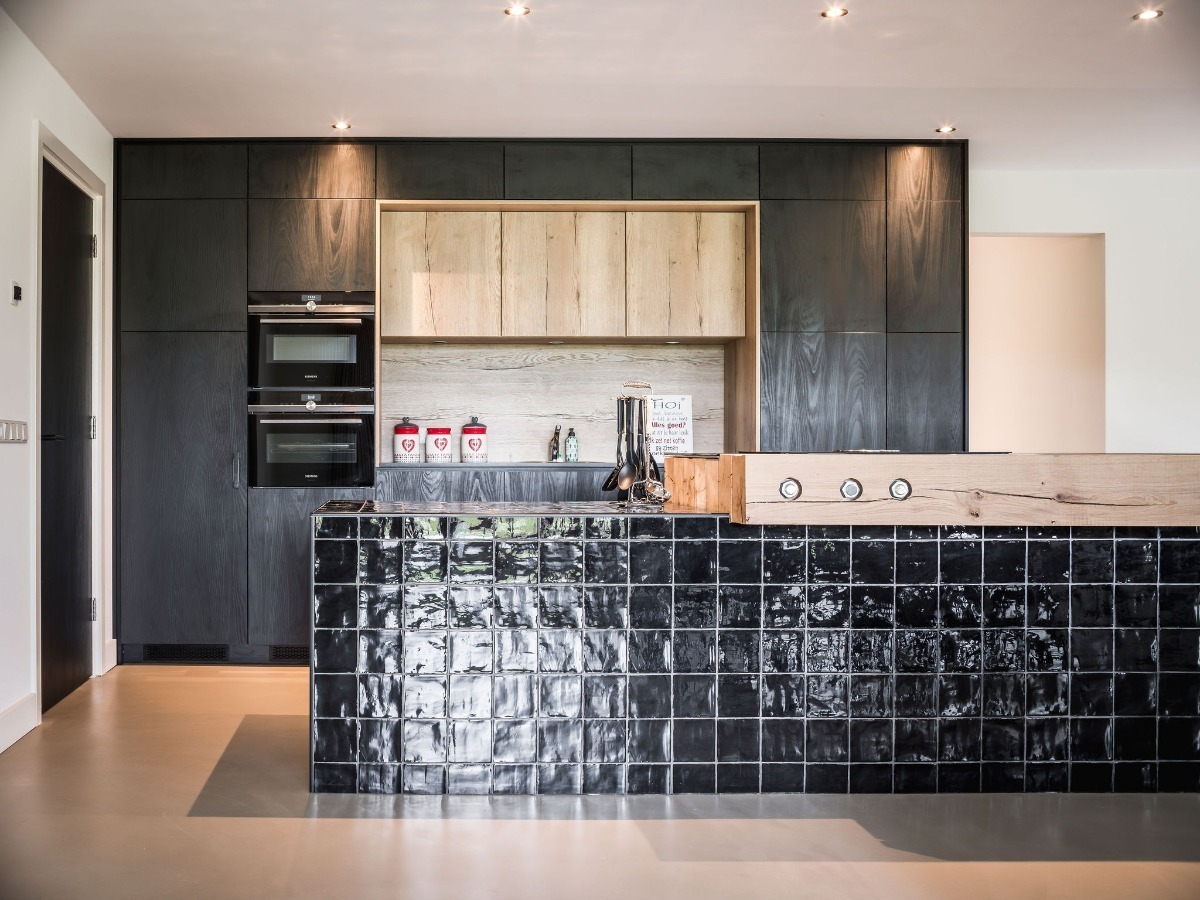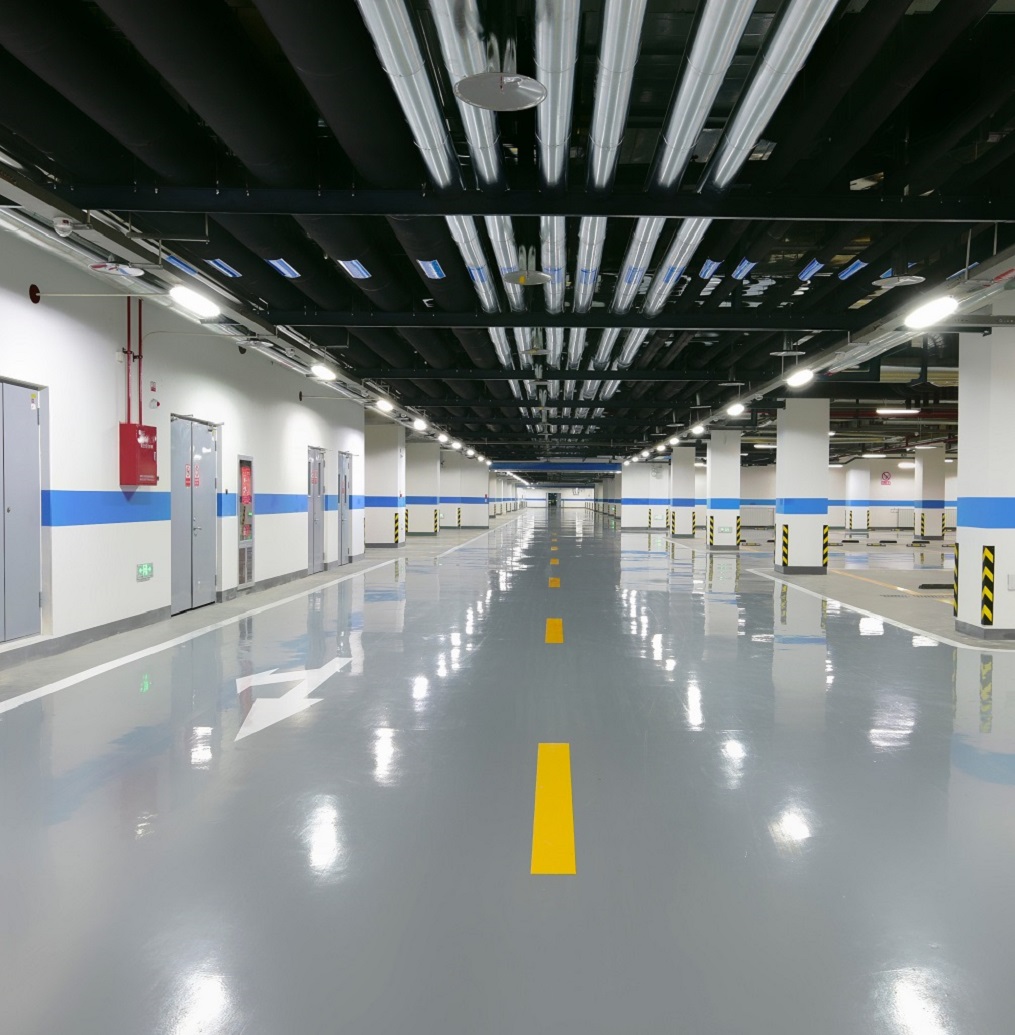What is the difference between a PU and epoxy casting floor
When do you use an epoxy poured floor?
When do you use a PU cast floor?

Epoxy and PU are common types of cast flooring. But what exactly is the difference between these types of cast flooring?
You'll discover the differences and benefits of each type of casting floor in this overview.
What is PU?
PU or polyurethanes are self-leveling casting resins made from two components. These are a colored resin and the hardener. PU is available in a wide range of colors with a nice warm designer look. They offer comfort and are ideal for residential, showroom, kitchen, bathroom or office applications. PU is practically odorless and can be processed without problems in enclosed spaces. These casting resins are colored beforehand to obtain a stable and uniform color.
You have two types of PU cast floors: a self-leveling version that you need to finish with a colored top coat and a fully UV-resistant version, which you can finish with a colorless top coat.
Applying a PU cast floor is the ideal solution if you are going to renovate. That's because you don't have to break out your old tiles. A cast floor is a finishing layer that is applied in an average thickness of 1.5 to 4 mm.
What is epoxy?
Epoxies are liquid resins that are made of two components. On one hand, you have the resin and on the other the hardener. Both must be mixed together in the correct mixing ratio. After mixing, the processing time (also called pot life) starts. Within this time, the mixture must be processed. In many applications, you can add a third component, such as sand, to increase wear resistance and reduce cost. Epoxy cast floors are harder than PU but less elastic. So it is very important to work with an epoxy floor on a stable substrate to avoid cracking. Epoxy floors are ideal for stores, production areas, warehouses, garages, workshops, technical areas, commercial kitchens and industrial environments.
There are two types of epoxy screeds: a self-leveling screed and a gravel (quartz carpet) floor. The composition of these two types of casting floor is different. The leveling casting floor is made of casting resin and is finished with a PU top coat. The gravel floor is made of a mixture of sand (gravel) and epoxy resin that provides a hard-wearing bond.
Advantages PU floor
Thanks to its ease of processing and high elasticity after curing, more and more people are preferring the application of PU cast floors for residential and living spaces. They can be applied easily on cement and gypsum-based substrates. In addition, PU floors are crack-bridging and liquid-proof.
- Beautiful smooth design
- Seamless
- Permanent and available in several colors (e.g.: concrete look)
- Elastic and available in different hardnesses
- Low maintenance
- Dust mite resistant
- Soundproof
- Durable
Advantages epoxy floor
These are usually used in workshops, garages and warehouses where increased water and chemical resistance is required. The compressive strength of epoxy is also higher than that of a PU cast floor, which allows heavy machinery to be placed on it. Epoxy cast floors can be obtained with a range of finishing options. An epoxy cast floor is also completely waterproof and resistant to greases, oils and industrial cleaners.


Disadvantages PU floor
PU cast floors are rather soft to the touch, therefore they do not have the highest wear resistance. That why, in commercial floors where they are subject to high wear and tear, we do not recommend using PU. Also in living spaces where dogs live, be sure to place a harder and wear-resistant final coat. PU cast floors are not suitable for industrial environments. The UV-resistant variant is slightly more expensive compared to the standard PU cast floor or an epoxy cast floor. You should apply the PU cast floor on a surface that is as dry as possible, since a PU cast floor is sensitive to moisture during processing.
Disadvantages epoxy floor
Epoxy cast floors are rather hard and not very elastic. You need to take this into account when your subfloor expands and contracts. That is why we do not recommend using an epoxy cast floor when using underfloor heating.
- Generates impact noise, less sound dampening than PU
- Feels cold on the surface, less insulating
- Not suitable when using underfloor heating
- Scratch-sensitive
- Easy to tear on unstable surfaces
More Info
Feel free to contact us to receive more info about our products.
